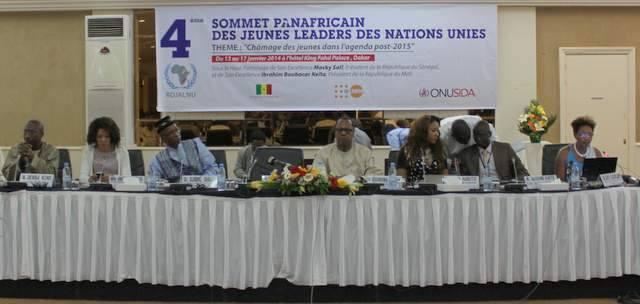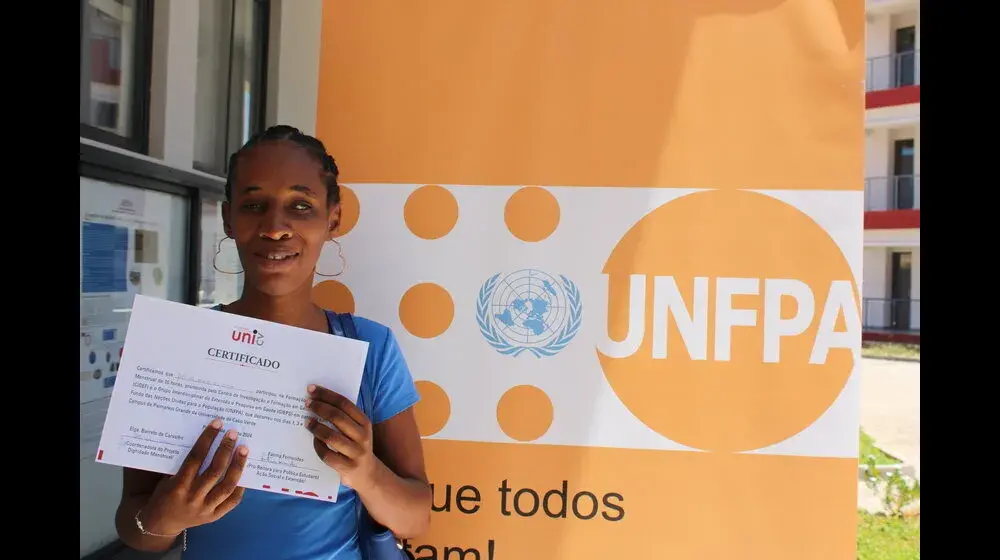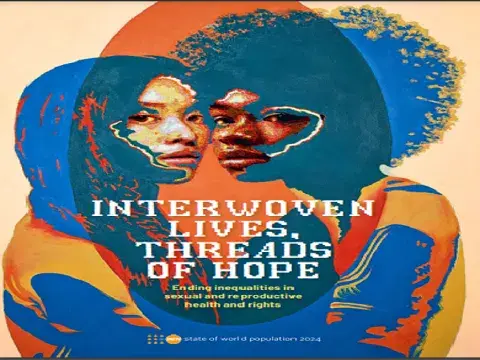Dakar (Senegal) More than 500 young leaders from over 50 countries in Africa and the Americas and Europe Diaspora have made commitments and recommendations by unanimously adopting "The Dakar Call for Action" which urges that a goal on youth empowerment, and another one on youth sexual and reproductive health and the elimination of HIV be included in the post-2015 development agenda.
Participants discussed "Youth Unemployment" at the summit held from 13th to 17th January in Dakar organized and by the African Network of United Nations Young Leaders (ROJALNU) established in 2004 and which has national chapters in more than 40 countries.
Young people called for the prioritization of youth employment and health in national and international development plans and the implementation of the African Youth Charter.
Given that young people under 30 years old account for 70% of the African population and the rate of youth unemployment is twice that of adults, the fourth PanAfrican youth summit recommends that the education system be aligned with the employment needs, technical and vocational training be enhanced, entrepreneurship be promoted and the volunteer programs that promote youth creativity be developed.
Youths also pledged to contribute to the advent of national economies and take up the development challenge in their respective countries through a strong and active citizenship.
The president of ROJALNU, Mr. Alioune Gueye, presented the unanimously-adopted Dakar Call for Action to the representative of the Malian head of State, Mr. Malick Sene , who is the Executive Secretary of the National AIDS High Council and the Senegalese Minister of Youth, Employment and Civic Values Promotion, Mr Benoit Sambou , representing the President of Senegal Macky Sall.

"Young Africans want new Millennium Development Goals centered on youth. I call on young leaders at this summit to continue the advocacy in their countries for the implementation of the call and create a local ROJALNU branch by March in countries where there is none," Mr Sene said.
The two African heads of State, who are co -sponsors of the 4th summit, will be the spokespersons of African youths at the 22nd African Union summit holding from 21 to 31 January, the 14th Francophonie Summit to be held in Senegal in November and at the United Nations General Assembly.
Speaking on behalf of Mr. Emile Dialla Burkinabe Minister of Youth and outgoing ROJALNU chairperson, the national director of the Burkina Youth Council announced that the Headquarters Agreement between ROJALNU and Burkina Faso was ready and that land will be provided to the organization in Ouagadougou.
He reiterated the Government of Burkina’s commitment to supporting young people in all their undertakings before passing the presidency of the organization to the Minister of Youth of the host country Mr. Sambou.
For her part, the representative of Latin America and Deputy Secretary General of the National Youth Council of Brazil, Ms Angela Guimaraes, made a declaration of commitment on behalf of young people from Africa and the Diaspora to create a partnership and set up a structure in order to coordinate their work.
"We are committed to development and respect for human rights, the strengthening of South-South cooperation and greater political participation as well as strengthening the dialogue between Africa and the Diaspora," she said.
Guimaraes added that young people want to create a database of all Diaspora organizations that want to invest in Africa and work with youths while hoping that the Durban Declaration against Racism will be added to the summit’s final declaration.

In her speech to President Macky Sall on behalf of Portia Simpson-Miller the Prime Minister of Jamaica, Miss Gina Hargitay reiterated her country’s commitment, which is part of the sixth region of the African Union, to help young people achieve their goals, calling on African governments, civil society and the private sector to engage in this direction.
The UNFPA Representative in Senegal, Mr. Bouréima Diadié, praised the partnership between UNFPA and UNAIDS and their commitment to youth.
He reiterated the commitment of his organization to youths in the areas of sexual and reproductive health and rights, the fight against HIV/AIDS, calling on young people to develop their potential because they have their future in their hands. "Get up, stand up, fight for your rights," he concluded.
The UNAIDS representative in Senegal, Mr. Koné Demba, welcomed young people’s commitment to improving their condition by speaking on their own behalf and participating in decision making.
In her word of thanks on behalf of her peers, Joannie Bewa of Benin called for a lasting solution to conflicts on the continent, particularly in Central African Republic and South Sudan, two of the few countries that did not send representatives to the summit.
The ROJALNU chairperson and Youth minister of Senegal Mr. Sambou reiterated the commitment of President Macky Sall to carry the message of young people to his counterparts. He also urged young leaders to be more involved in finding solutions to the problem of unemployment which remains a major economic challenge.
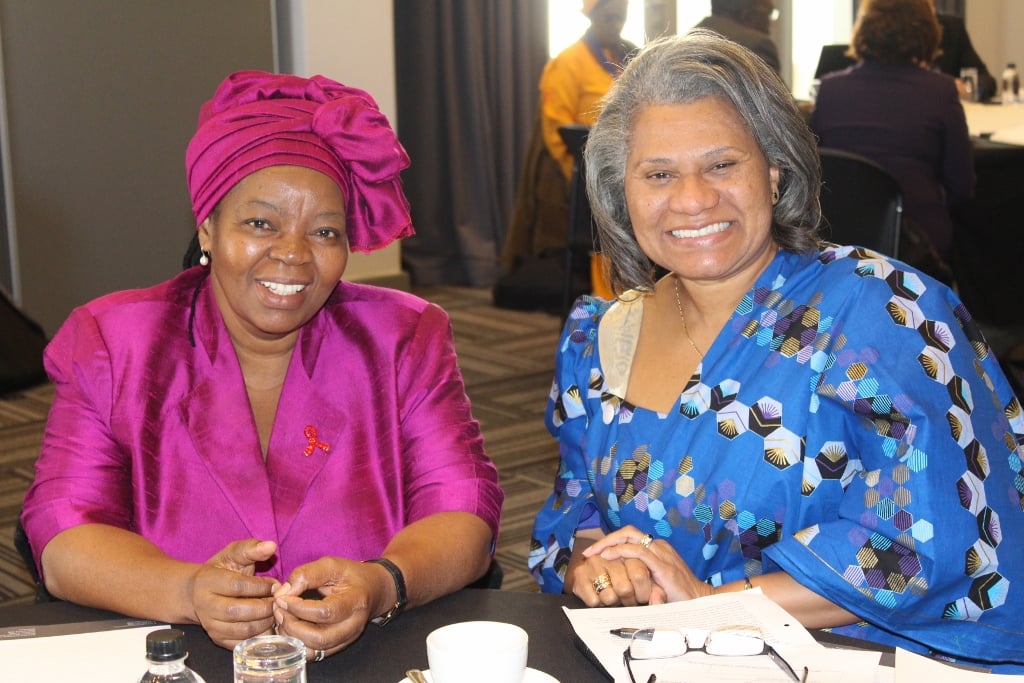
"This summit must be the beginning of the implementation of a strategy, an action plan for youth and advocacy for your governments to take youth unemployment into account," he said.
Declaring the summit closed, Mr. Sambou called for an African agreement to pool efforts together to address unemployment, and work on reproductive health policies that enable young people to reach their goals and take part in the development of their country.
ROJALNU signed an agreement with the Millennium Villages Project for its members to repeat the village experience in their countries.
The torch of the Pan-African Youth Leadership Summit was presented to Ms. Angela Guimaraes of Brazil, the host country of the next summit in December in San Salvador de Bahia, as a run-up to the Second Global Youth Summit in 2015.
During the 4th summit, young people discussed topics such as the demographic dividend, gender based violence, HIV / AIDS, reproductive health of adolescents, and information and communication technology.
As part of the campaign "Protect the goal ", which uses sport and culture to raise awareness about HIV and mobilize young people for AIDS prevention, each country received a football. Youth representatives should once in their country make a video about the ball that will highlight their culture as well as good practices to eradicate AIDS.
During the session on "Protect the goal" in which Senegalese singer Baaba Maal and FIFA Vice -President cum CONCACAF President Jeffrey Webb took part, UNFPA Benin representative Ms Diene Keita insisted on the cultural dimension of the campaign against AIDS.
"Walk the talk. Protect yourself and protect the other. You must know your culture, understand the culture of others, understand your community and respect your commitment," she said after beginning her presentation with a song by Nigerian group Psquare entitled “Personally" that made the whole conference room dance.
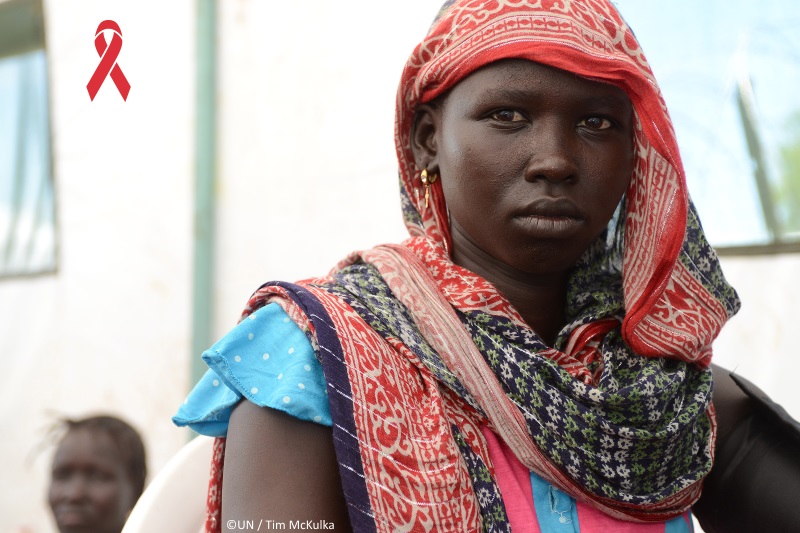
According to Ms. Keita, young people must undergo HIV screening and always have their blood donation cards with them to be ready to save lives wherever they are.
"Culture was created by people, society and therefore it can evolve. Respect gender equality, democracy begins at home, at the grassroots," she added.
The "Condomize" Campaign supported by UNFPA which aims to de-stigmatize the use of female and male condoms also caused a sensation at the summit.
As a reminder, UNFPA, through its Executive Director Dr. Babatunde Osotimehin, suggested at the opening of the summit that a specific goal for young people be provided for in the post2015 development which will include access to sexual and reproduction health and rights, access to education and access to entrepreneurial skills among others.
The summit was organized by the Network of Young Leaders from Africa and the Diaspora in the Americas and Europe (ROJALNU) , in collaboration with the United Nations Population Fund (UNFPA) and the Joint United Nations Programme on HIV/AIDS (UNAIDS).
Young people in sub-Saharan Africa, North Africa, Latin America and the Caribbean have socialized during the 5 days the summit lasted.

